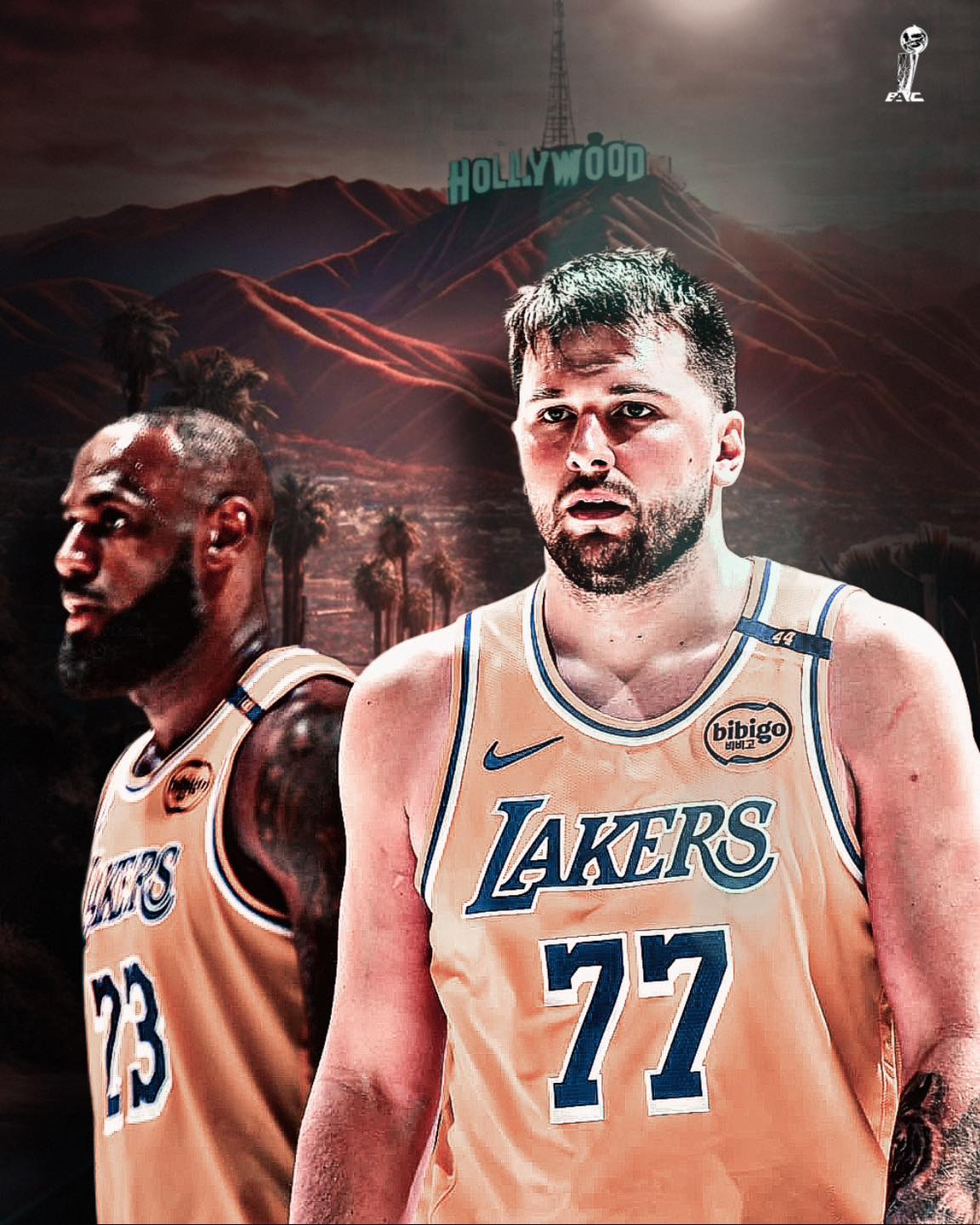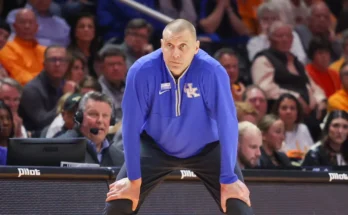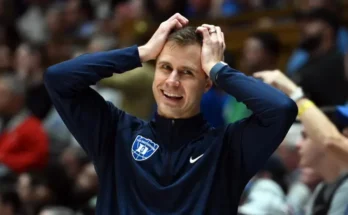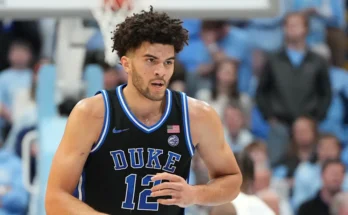REPORT: Lakers Told Luka Doncic About Mark Walter Buying Team — But Kept LeBron James Completely in the Dark About Sale
In an offseason already brimming with speculation, whispers, and veiled tension, the latest revelation to emerge from Los Angeles might be the most seismic of all. According to multiple reports, when the Buss family agreed to sell a majority stake in the Los Angeles Lakers to billionaire investor Mark Walter on June 18, one player was notified in advance: Luka Dončić. The man who wasn’t told? None other than LeBron James.
Let that sink in.
While Doncic — currently a Dallas Mavericks superstar and a potential future Laker — was quietly informed of the franchise-changing deal, LeBron James, the face of the Lakers since 2018 and the player who helped deliver their 17th championship banner in 2020, found out just like everyone else: after the news had already broken. No call. No meeting. Not even a courtesy heads-up.
The contrast couldn’t be starker. Doncic took to social media to publicly congratulate Walter and the Lakers, posting a brief but telling message: “Big move. Congrats to Mark Walter and the Lakers organization.” Meanwhile, LeBron — typically active and engaged in all matters Lakers — was notably silent. No tweet. No post. No press release. Just silence.
Is it something? Is it nothing? Or is it everything?
To longtime NBA observers and insiders close to the team, this is more than just an accidental oversight. It is a message — deliberate or not — about where LeBron stands in the Lakers’ evolving power structure, and perhaps, where the Lakers want to go next.
Sources around the league suggest the dynamic between LeBron and the Lakers front office has been shifting for some time. While public appearances suggest mutual respect, there’s also been mounting tension over roster construction, coaching decisions, and long-term direction. LeBron has not been shy about voicing his frustration in recent seasons, whether through cryptic social media posts or pointed comments during press conferences. Now, with the franchise under new majority ownership, the very foundation of his relationship with the team may be undergoing a quiet transformation.
Walter, co-founder and CEO of Guggenheim Partners and part owner of the Los Angeles Dodgers, is not new to the Los Angeles sports scene. He’s known for his methodical, business-savvy approach and for bringing long-term vision to teams he invests in. His takeover of the Lakers signals a fresh chapter, one focused on infrastructure, branding, and perhaps rebuilding — even if that means rethinking who holds influence behind closed doors.
Informing Doncic about the sale, especially when he doesn’t currently wear purple and gold, could hint at deeper conversations happening behind the scenes. Could the Lakers be laying the groundwork for a future without LeBron? Could they be envisioning a new era with Luka Dončić at the helm? The speculation writes itself.
While Doncic is still under contract with the Mavericks, his name has been floated in connection with the Lakers more than once. His admiration for Kobe Bryant is well-documented, and playing in Los Angeles has long been considered a dream scenario for the Slovenian phenom. Could this early communication regarding ownership indicate serious interest in eventually bringing him to LA? Or was it simply a friendly gesture from a new owner with broader NBA connections?
Regardless, the snub toward LeBron is glaring.
“It’s hard to believe that this was just a miscommunication,” one league executive told The Athletic. “LeBron has carried that franchise through turbulent times, brought them a title, and remained the face of their global identity. If they didn’t tell him, it means they chose not to.”
The timing of the sale — and the revelation — is also notable. LeBron has yet to commit to playing beyond the 2025-26 season. He holds a player option and has previously expressed interest in playing with his son, Bronny James, who was recently drafted by the Lakers. Some interpreted Bronny’s selection as a peace offering or a loyalty move to keep LeBron in LA. Now, with this information surfacing, that narrative becomes more complicated.
Did the Lakers select Bronny out of genuine basketball belief, or was it a temporary appeasement to ensure LeBron stays happy while the team transitions into new ownership?
The silence from LeBron’s camp has been deafening. For someone who has historically used media, both social and traditional, to shape the narrative and protect his brand, his unwillingness to comment may say more than any formal statement ever could. Is he quietly fuming? Strategically observing? Or perhaps preparing his exit?
As of now, LeBron remains under contract and appears poised to play alongside his son in what could be an emotional swan song season. But this incident raises questions about how that season might play out — and whether it will be his last in L.A.
LeBron James has always demanded a seat at the table, especially with teams he’s elevated into contention. The idea that he was excluded from such a significant moment in Lakers history doesn’t just feel wrong — it feels like a power shift. A quiet dethroning. Whether intentional or not, the message is clear: a new era is beginning, and LeBron may no longer be central to it.
Around the NBA, executives and analysts are watching closely. If LeBron feels blindsided and betrayed, there could be repercussions beyond the Lakers organization. LeBron’s influence stretches far beyond the court — from business ventures like SpringHill to media initiatives and political activism. He has the platform, the brand, and the loyalty to make waves if he chooses to.
On the flip side, some argue that LeBron being left out of the loop might not be as big a deal as it appears.
“Ownership changes are business decisions,” said one former NBA GM. “They’re not always personal. And maybe the Buss family or Walter simply didn’t want to create distractions by informing players one by one before things were finalized. But yeah… telling Luka and not LeBron? That’s a decision someone made.”
Regardless of whether this situation fizzles out or becomes a pivotal fracture, the fact that this story has broken into the public sphere is a sign of its potential impact. In a league where optics and respect are everything, not informing LeBron James — arguably the greatest player of his generation — of a franchise-changing sale feels like a seismic misstep… or a strategic statement.
Could it be nothing? Sure. Business is messy, timing is tricky, and not every decision is made with emotional intelligence.
Could it be something? Absolutely. Because LeBron doesn’t forget slights, intentional or not. And he doesn’t suffer disrespect quietly.
Or maybe — just maybe — it’s everything.
The start of the end. The final fracture. The moment where LeBron James, already drifting toward the twilight of his career, begins charting his final path away from the franchise he helped restore. Whether that path ends in retirement, another team, or simply an internal withdrawal from the Lakers’ long-term plans, one thing’s for certain:
They told Luka.
They didn’t tell LeBron.
And in Los Angeles, that means something.



